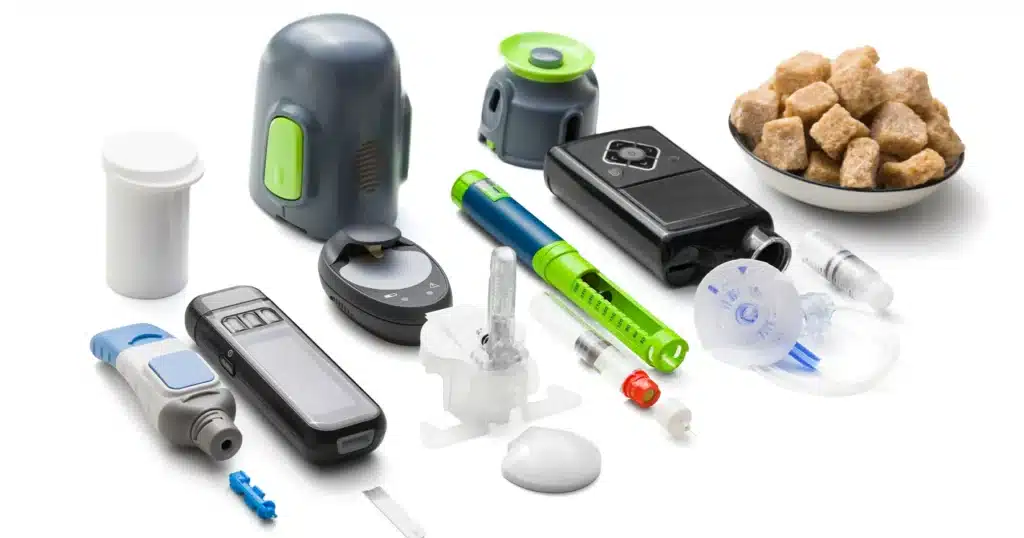The landscape of diabetes care is undergoing a significant transformation with the introduction of new funded devices designed to enhance blood glucose management. These innovations are set to benefit thousands of diabetics, offering improved control over their condition and a better quality of life. As these devices become more widely available, they represent a major step forward in Diabetic complications, helping patients maintain stable blood glucose levels and reduce the risk of complications.
The Growing Importance of Advanced Diabetes Care
Glucose monitoring has always been challenging, requiring constant monitoring and careful management of blood glucose levels. Traditional methods, while effective to some extent, often leave patients vulnerable to complications such as heart disease, nerve damage, and kidney issues. As the global prevalence of diabetes continues to rise, the need for more advanced Diabetic complications solutions becomes increasingly critical.
How New Devices Are Enhancing Diabetes Care
The launch of newly financed gadgets represents a breakthrough in the treatment of diabetes. These technologies, including continuous glucose monitors (CGMs), insulin pumps, and hybrid closed-loop systems, provide real-time data and automated insulin delivery, reducing the need for manual interventions. These advancements are not only improving blood glucose management but also empowering patients to take more control over their health.
Continuous Glucose Monitors
One essential component of contemporary diabetic therapy is continuous glucose monitors or CGMs. Unlike traditional methods, CGMs offer continuous tracking of blood glucose levels throughout the day and night. This allows patients to make informed decisions about their diet, exercise, and medication, ultimately leading to better health outcomes. With funding support, more patients can now access these essential devices, further improving Diabetic complications.
More Read About: Why Non-Diabetics Are Using Glucose Monitors for Health Tracking
Insulin Pumps and Closed-Loop Systems
Insulin pumps have long been a critical component of diabetes care, but the advent of hybrid closed-loop systems has taken this technology to the next level. These systems combine CGMs with insulin pumps, creating an automated system that delivers insulin based on real-time glucose readings. This not only enhances the effectiveness of Diabetic complications but also reduces the risk of complications such as hypoglycemia.
Expanding Access to Advanced Diabetes Care Through Funding
One of the primary challenges in accessing advanced diabetes care technologies has been their cost. Fortunately, recent funding initiatives have made these devices more accessible to a broader population. Government programs, insurance providers, and nonprofit organizations are working together to ensure that these life-changing technologies are available to all who need them, thereby improving overall Diabetic complications.
Patient Stories: Real-Life Impact of Enhanced Diabetes Care
Patients who have gained access to these funded devices often report significant improvements in their lives. For example, individuals using CGMs frequently express greater confidence in managing their blood glucose levels, leading to fewer hospitalizations and better overall health. Similarly, those utilizing hybrid closed-loop systems experience fewer episodes of severe hypoglycemia, enabling them to live more active and fulfilling lives. These stories highlight the transformative impact of advanced Diabetic complications.
The Future of Diabetes Care
As technology continues to evolve, the future of diabetes care looks increasingly promising. Researchers and developers are constantly working on creating more sophisticated devices that will further enhance blood glucose management. At the same time, advocacy efforts are focused on expanding funding and insurance coverage, ensuring that these cutting-edge technologies are accessible to everyone in need, thus shaping the future of Diabetic complications.
Conclusion
The introduction of new funded devices is ushering in a new era of diabetes care. By providing diabetics with advanced tools to monitor and manage their blood glucose levels, these technologies are improving the quality of life for thousands. As funding initiatives expand, making these devices more widely available, we are witnessing a future where diabetic complications are not just about managing the disease but about enhancing the lives of those affected by it.


